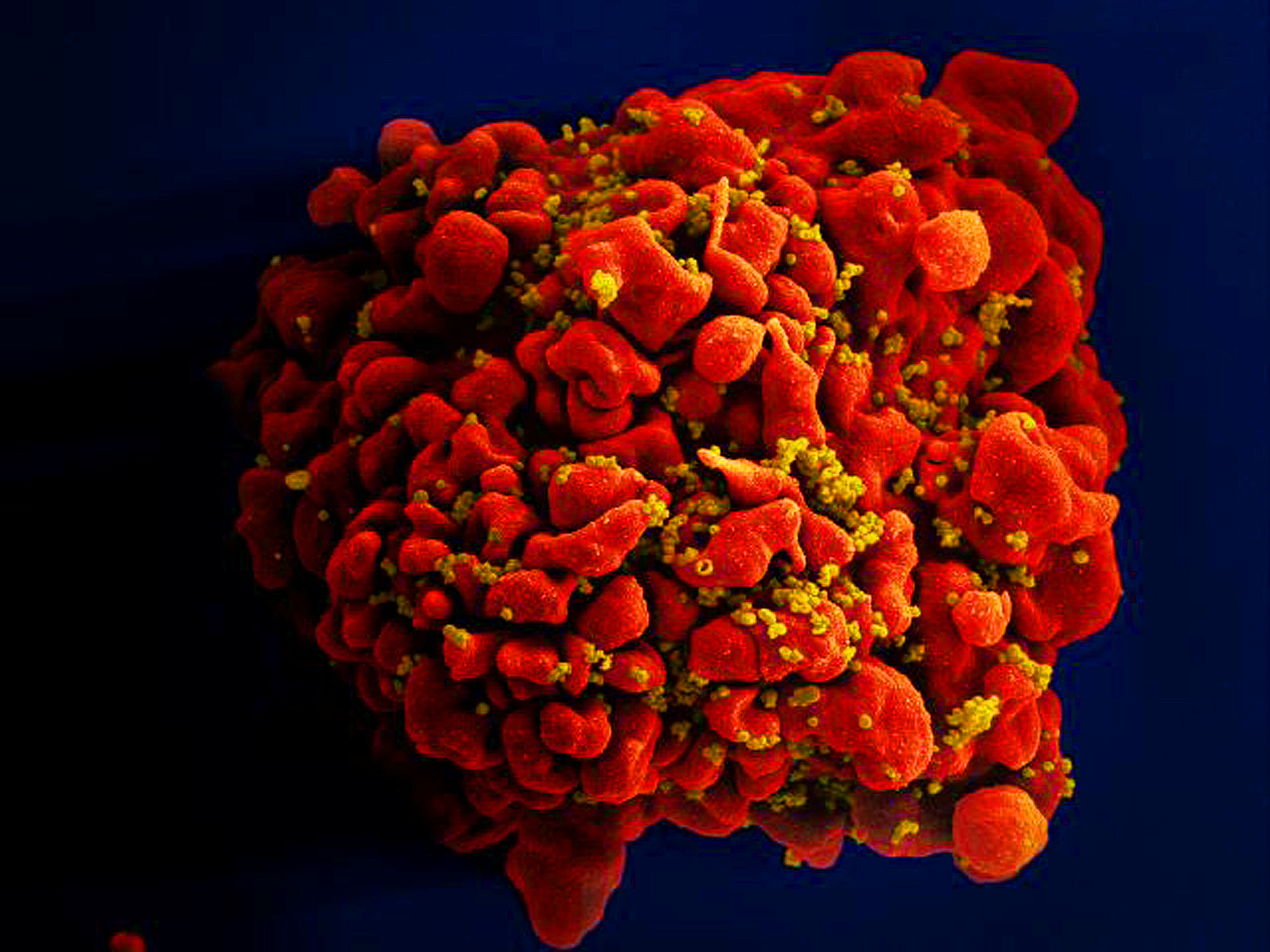DOH: Undiagnosed HIV cases contribute to spread of virus

A digitally colorized scanning electron microscopic image depicts a single, red-colored H9-T cell that had been infected by numerous, spheroid shaped, mustard colored human immunodeficiency virus (HIV) particles attached to the cell’s surface membrane. Courtesy NIAID
ILOILO CITY — Health officials have appealed to the public to get tested for the Human Immunodeficiency Virus (HIV) to stop the spread of the illness.
Joseph Carlo Carillo of the Department of Health’s (DOH) Infectious Diseases Cluster said they believed there are people living with HIV who remain undiagnosed.
“The concern we have for that is if people do not know their status, they could be infecting others unknowingly, and because they don’t know their status, they will end up in our hospitals sick,” Carillo said on Dec. 1.
“It is important that we know our status, early diagnosis [and] early treatment equals better health outcomes so that we don’t fall toward opportunistic infections, and that would also reduce deaths among people living with HIV,” he added.
The DOH-Western Visayas Center for Health Development’s data as of September 2024 indicated that 8,607 people living with HIV had been diagnosed since 1986.
READ: DOH: Number of Filipinos with HIV may reach 448,000 by 2030
Iloilo province logged the highest number of cases with 1,990, followed by Negros Occidental (1,664), Iloilo City (1,593), Bacolod City (1,880), Capiz (814), Aklan (684), Antique (507), and Guimaras (175).
Among those diagnosed, 5,763, or 76% are on antiretroviral treatment (ART), a treatment that helps manage the disease and prevent it from spreading.
“Here in the region, we have a great challenge for testing, because only half of the estimated [persons living with HIVs] have been tested, so our campaign right now, especially with the theme of World AIDS Day 2024, is to take the right path,” Carillo said.
“It’s important that we know, everyone knows, their status so that we can protect ourselves and also others, because [of] the right of our partners to avoid the disease which can be acquired through sex or other ways, because there are other ways of getting HIV,” he added.
READ: HIV cases among Filipinos continue to rise, says DOH
Carillo encouraged the public to get tested, citing the 19 existing testing facilities in the region, which are expected to increase to 28 in early 2025.
He also cited the importance of testing and treatment among working individuals, citing their data which suggests that the virus is most prevalent among this group.
Among already-confirmed HIV cases from 1986 to Sept. 2024, 4,330 or 50.31 percent are aged between 25 to 34 years at the time of their diagnosis, followed by the 15 to 24 years age group at 2,492 or 28.95 percent.
“We always advocate that HIV is not only a health issue, it is [also] a developmental issue because the greatest number of [persons living with HIVs within Western Visayas] is our working population, and most of the time we diagnose them in the late stage of the disease,” Carillo said.
“Early diagnosis and treatment lead to better health outcomes. If people remain unaware of their status, they could unknowingly infect others and risk developing advanced HIV diseases that result in hospitalizations. It’s not who you are but what you do that puts you at risk. Early detection is crucial to prevent severe infections,” he added.